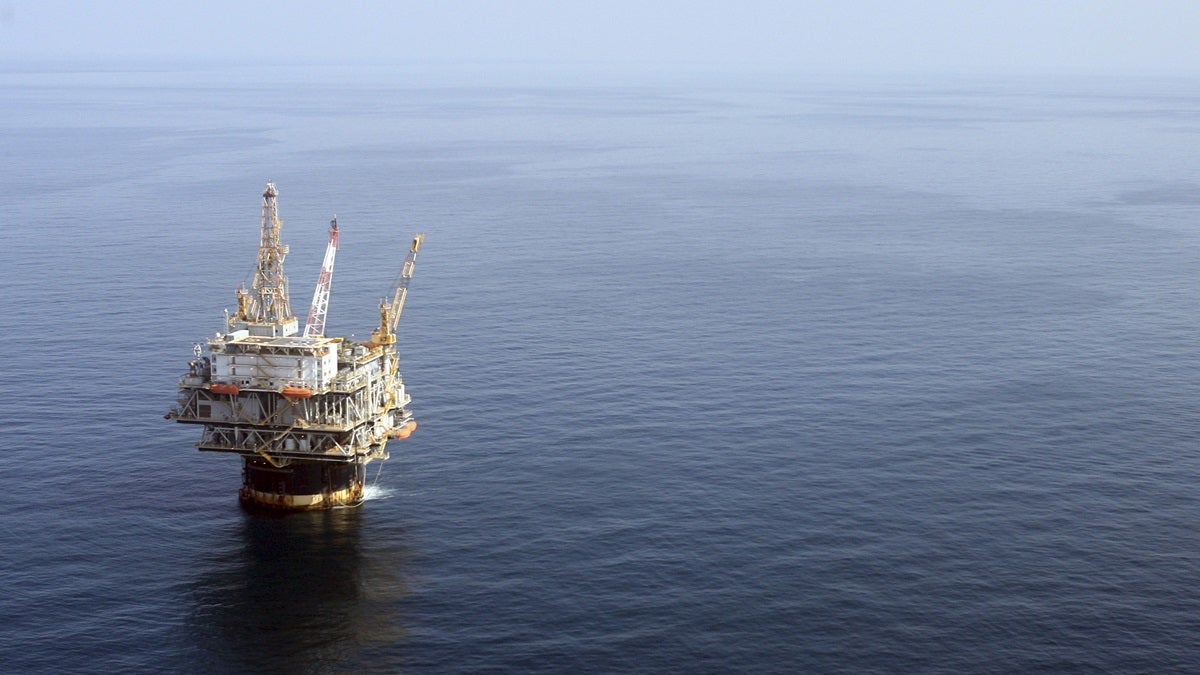Delaware opposes U.S. effort to search for oil beneath ocean surface
The National Marine Fisheries Service has awarded permits to five marine contractors to conduct the tests in the Atlantic Ocean between Delaware and Central Florida.

In this file photo taken Aug. 19, 2008, the Chevron Genesis Oil Rig Platform is seen in the Gulf of Mexico near New Orleans, La. (Mary Altaffer/AP Photo)
Brain and organ hemorrhaging, ruptured ear drums, displacement and the separation of mothers and their offspring are some effects of seismic testing on marine animals, according to marine scientists.
However, the Trump administration has approved the practice used to search for oil and gas deposits under the ocean floor — a decision praised by the oil industry and denounced by conservationists.
The National Marine Fisheries Service has awarded permits to five marine contractors to conduct the tests in the Atlantic Ocean between Delaware and Central Florida.
The organization said required mitigation measures —including alerting operators if a protected species comes within a certain distance and gradual increases of seismic activity to alert animals in the area — to reduce impacts.
However, Delawareans and opponents in other states argue the tests, which send acoustic waves through the water, pose dangers to marine life.
“Marine animals, large whales and dolphins … are sound-reliant organisms, and the decibel level of this blasting and frequency it would be conducted can be fatal,” said Suzanne Thurman, executive director of the Marine Education, Research & Rehabilitation Institute in Lewes.
“The ocean is an ecosystem, and it cannot survive without the organisms and species present there,” she said. “For Delaware, that also enjoys a thriving ecotourism economy, that is a major part of it — people come for the oceans, for the incredible marine life that is visible from shore, for people who recreate or enjoy fishing, the economy is going to be significantly impacted.”
She and others are concerned the surveys will lead to the offshore drilling that Delaware officials vehemently oppose. In September, Gov. John Carney signed two pieces of legislation sponsored by state Sen. Ernie Lopez, R-Lewes. One prohibits drilling for oil and natural gas in Delaware’s coastal zone, and the other requires state agencies to review offshore oil and gas exploration leases along Delaware’s coast.
On Friday, U.S. Sen. Tom Carper of Delaware announced his opposition to the permits calling it a threat to Delaware’s economy and environment.
Lear year, he and U.S. Sen. Chris Coons notified the U.S. Department of Commerce of their opposition to permits for seismic surveys in the Atlantic.
“Clean coastal waters and the ocean ecosystems they support draw millions of visitors from around the country and billions of dollars for our coastal communities. This decision unnecessarily puts those economic drivers at risk, along with the vibrant marine life that inhabits the waters off of our coast,” Carper said.
“I have long advocated for a strategy to meet our country’s energy needs as we move toward greater energy efficiency and use of renewable energy, but today’s proposal to open up seismic testing in the Atlantic Ocean is shortsighted and tone-deaf. Just days after 13 federal agencies issued a dire warning about the impacts of climate change and the need to change course, the Trump administration has taken yet another major step backward.”
WHYY is your source for fact-based, in-depth journalism and information. As a nonprofit organization, we rely on financial support from readers like you. Please give today.



